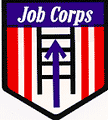|
Material moving workers are categorized into two groups-operators and laborers. Operators use machinery to move construction materials, earth, petroleum products, and other heavy materials. Generally, they move materials over short distances-around a construction site, factory, or warehouse. Some move materials onto or off of trucks and ships. Operators control equipment by moving levers or foot pedals, operating switches, or turning dials. They may also set up and inspect equipment, make adjustments, and perform minor repairs when needed. Laborers and hand material movers manually handle freight, stock, or other materials; clean vehicles, machinery, and other equipment; feed materials into or remove materials from machines or equipment; and pack or package products and materials.
Material moving occupations are classified by the type of equipment they operate or goods they handle. Each piece of equipment requires different skills to move different types of loads. (For information on operating engineers; paving, surfacing, and tamping equipment operators; and piledriver operators, see the statement on construction equipment operators elsewhere in the Handbook.)
Laborers and hand freight, stock, and material movers manually move materials or perform other unskilled general labor. These workers move freight, stock, and other materials to and from storage and production areas, loading docks, delivery vehicles, ships, and containers. Their specific duties vary by industry and work setting. Specialized workers within this group include baggage and cargo handlers, who work in transportation industries, and truck loaders and unloaders. In factories, they may move raw materials or finished goods between loading docks, storage areas, and work areas as well as sort materials and supplies and prepare them according to their work orders
Hand packers and packagers manually pack, package, or wrap a variety of materials. They may inspect items for defects, label cartons, stamp information on products, keep records of items packed, and stack packages on loading docks. This group also includes order fillers, who pack materials for shipment, as well as grocery store courtesy clerks. In grocery stores, they may bag groceries, carry packages to customers' cars, and return shopping carts to designated areas.
Many material moving workers work outdoors in every type of climate and weather condition. The work tends to be repetitive and physically demanding. They may lift and carry heavy objects, and stoop, kneel, crouch, or crawl in awkward positions. Some work at great heights, or outdoors in all weather conditions. Workers wear safety clothing, such as gloves and hardhats, and devices to protect their eyes, mouth, or hearing.
Material movers generally work 8-hour shifts, though longer shifts also are common. In many industries that work around the clock, material movers work evening or "graveyard" shifts. Some may work at night because the establishment may not want to disturb customers during normal business hours. Refuse and recyclable material collectors often work shifts starting at 5 or 6 a.m. Some material movers work only during certain seasons, such as when the weather permits construction activity.
Experience may allow workers to qualify or become trainees for jobs such as construction trades workers; assemblers or other production workers; motor vehicle operators; or vehicle and mobile equipment mechanics, installers, and repairers. In many workplaces, new workers often work in a material moving position before being promoted to a better paying and more highly skilled job. Some may eventually advance to become supervisors.
J
Annual Average openings 2002-2012 = 11,600
Job openings should be numerous because the occupation is very large and turnover is relatively high-characteristic of occupations requiring little formal training. Many openings will arise from the need to replace workers who transfer to other occupations, or who retire or leave the labor force for other reasons.
Employment in material moving occupations will increase more slowly than average for all occupations through 2012. Employment growth will stem from an expanding economy and increased spending on the Nation's infrastructure, such as highways and bridges. However, equipment improvements, including the growing automation of material handling in factories and warehouses, will continue to raise productivity and moderate the demand for material movers.
Santa Clara County
|
Hourly Mean
$10.66 |
Hourly Entry Level
$7.70 |
Hourly Experienced
$12.13 |
To enroll in this San Jose Job Corps Course: TABE Math/Reading score of 493 or GED/HS diploma.
Material moving equipment operators need a good sense of balance, distance judgment, and eye-hand-foot coordination. For those jobs that involve dealing with the public, such as grocery store courtesy clerks, workers should be pleasant and courteous. Most jobs require reading and basic mathematics skills to read procedures manuals and billing and other documents. Mechanical aptitude and high school training in automobile or diesel mechanics are helpful because workers may perform some maintenance on their equipment. Experience operating mobile equipment, such as tractors on farms or heavy equipment in the Armed Forces, is an asset. As material moving equipment becomes more automated, many workers will need basic computer and technical knowledge to operate the equipment
Back to Top
|
|



